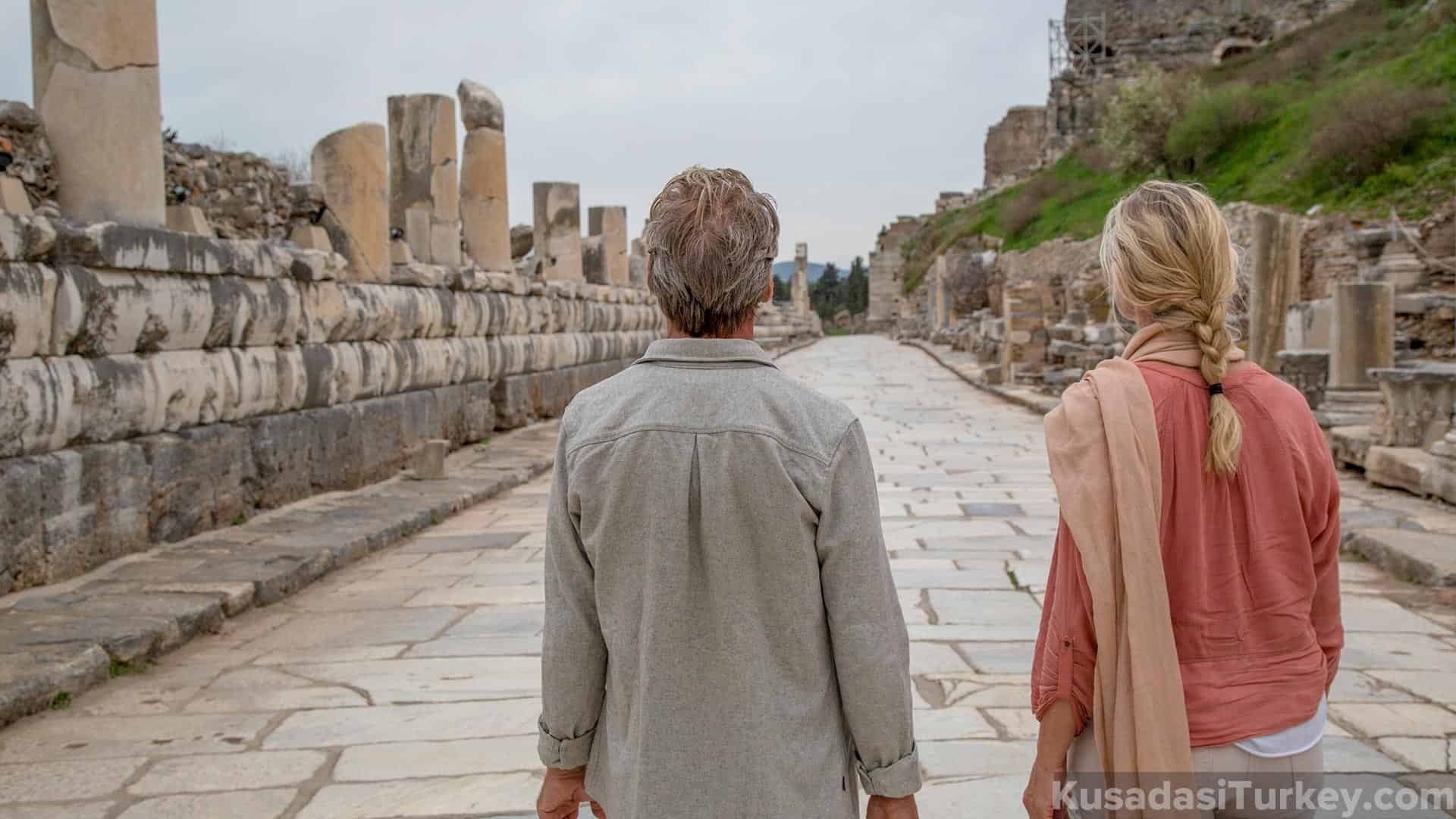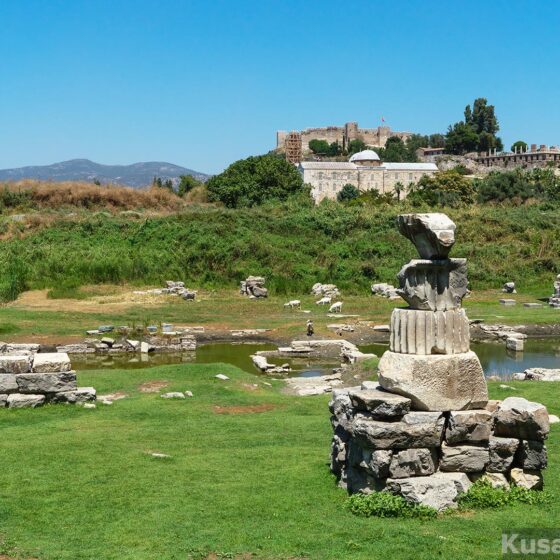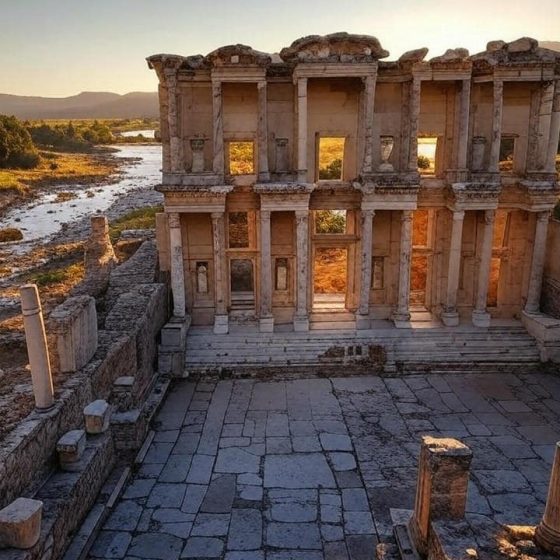Ephesus, the crown jewel of the Ionian Coast is a testament to the kings and emperors who sculpted its destiny. Their influence, etched into the city’s very stones, transcends time, narrating a tale of power, grandeur, and the ebb and flow of empires. In this post, we embark on a journey through time, exploring the influence of these rulers on Ephesus’s rise to greatness.
The history of Ephesus begins in the 10th century BC, founded according to legend by Androklos, son of the King of Athens-Kodros. Androklos became the first in a long line of influential figures to shape Ephesus’s future, laying the groundwork for what would become one of the most important cities of the ancient world.
Under the Lydian Kings, particularly King Croesus in the 6th century BC, Ephesus flourished. It was during this period that the original Temple of Artemis, one of the Seven Wonders of the Ancient World, was constructed, marking Ephesus as a city of significance.
The city changed hands again when the Persians took control, only to be liberated by Alexander the Great in 334 BC. Alexander’s reign brought significant enhancements to the city, including the rebuilding of the Temple of Artemis which had been destroyed by a devastating fire.
Ephesus reached its zenith during the Roman Era. The Roman Kings and later the Emperors’ investment in the city saw it develop into the second-largest city in the Roman Empire. The grandeur of Roman architectural influence can still be seen today in the Celsus Library, the Terrace Houses, and the Great Theatre.
Under the reign of Emperor Hadrian, Ephesus became a hub of arts, culture, and commerce. The Hadrian Temple, erected in his honour, stands as a symbol of this prosperous era.
As the Byzantine era dawned, Ephesus remained influential but began to lose its allure due to shifting trade routes and a receding harbour. However, it was during this period that the city became an important Christian centre, with emperors like Constantine the Great promoting Christianity.
Today, Ephesus stands as a testament to the grandeur of the kings who ruled it. From the ruins of the Celsus Library to the towering columns of the Temple of Artemis, every stone is imbued with stories of royal influence.
Visiting Ephesus is like leafing through the pages of a grand historical epic authored by the kings and emperors who once held sway over its destiny. As you explore its ancient streets, marvel at its monumental architecture, and bask in its historical wealth, you are truly walking in the footsteps of kings.
See also:
- 5 Fascinating Facts About Ephesus in Turkey
- Rich Heritage at Ephesus Archaeology Museum: A Journey Through Ancient Artifacts
- Unveiling the Treasures of Ephesus: A Must-Visit Ancient City
Last updated on February 10, 2024




